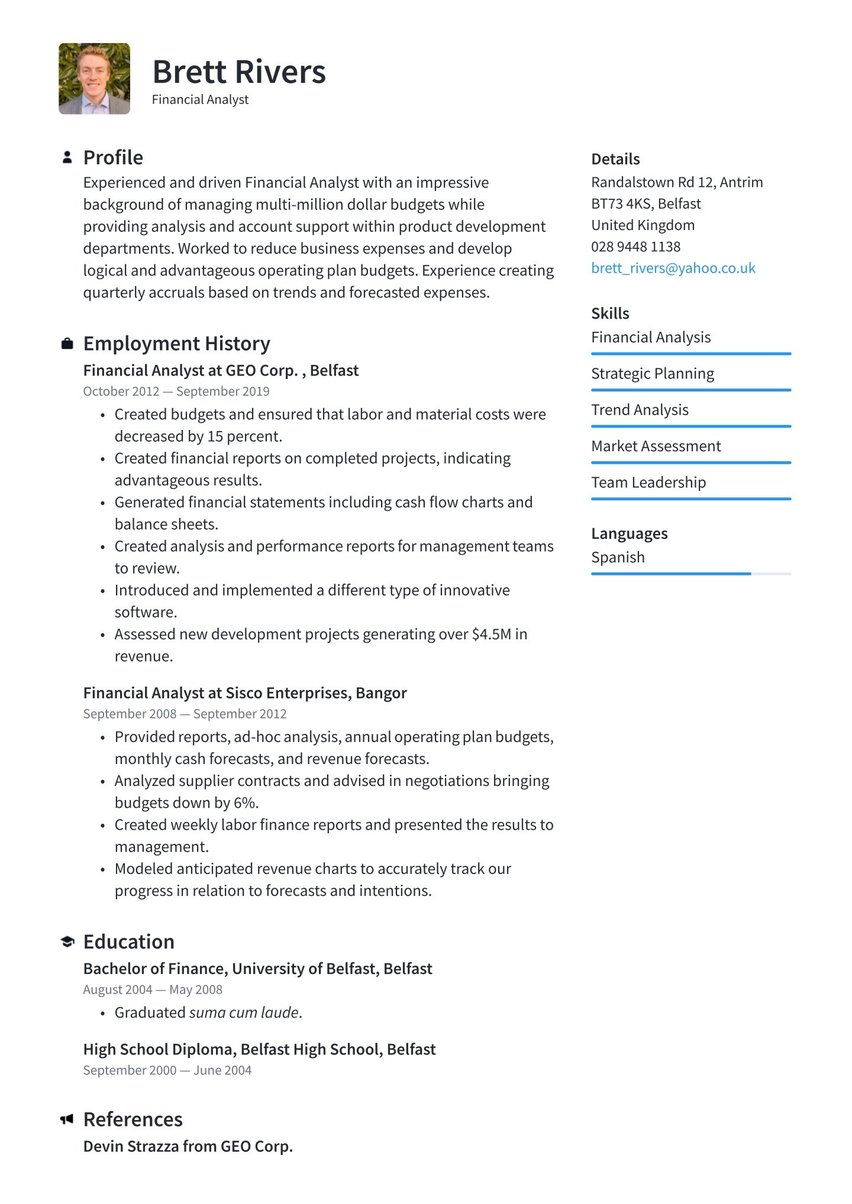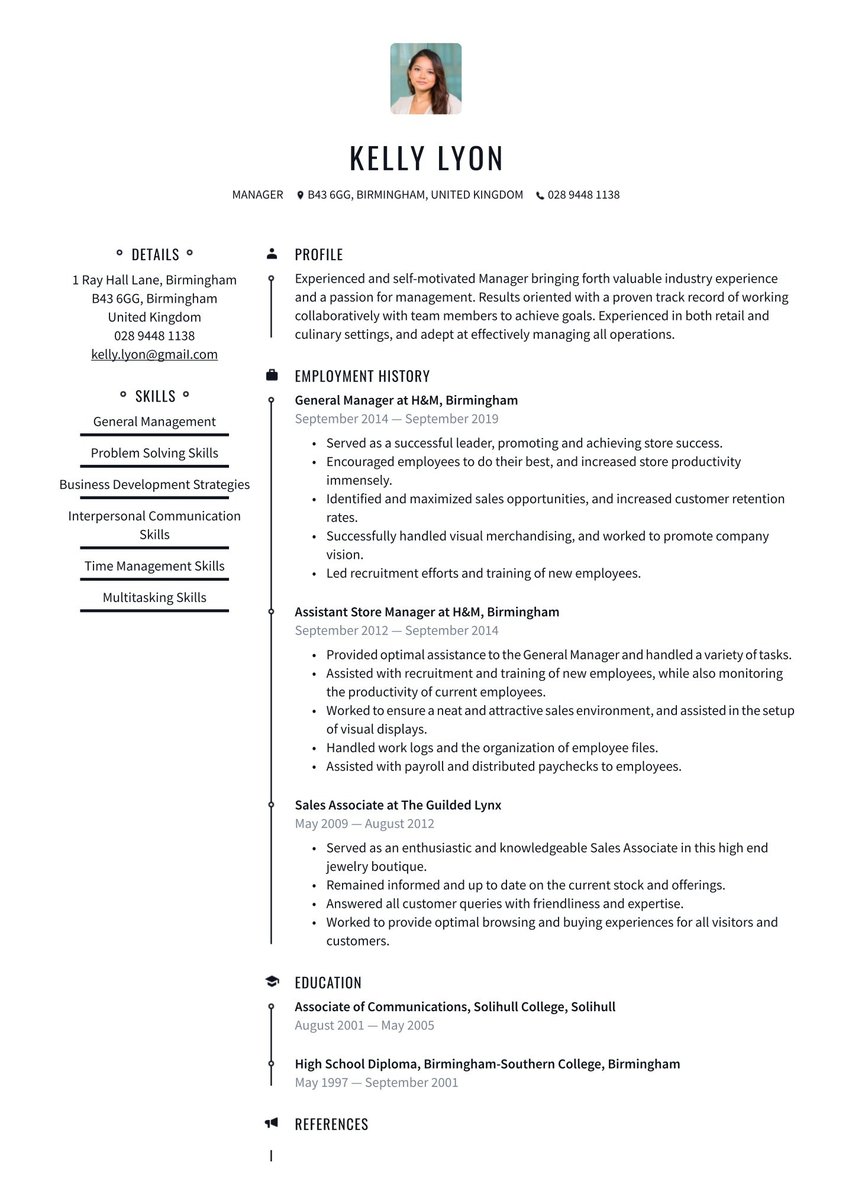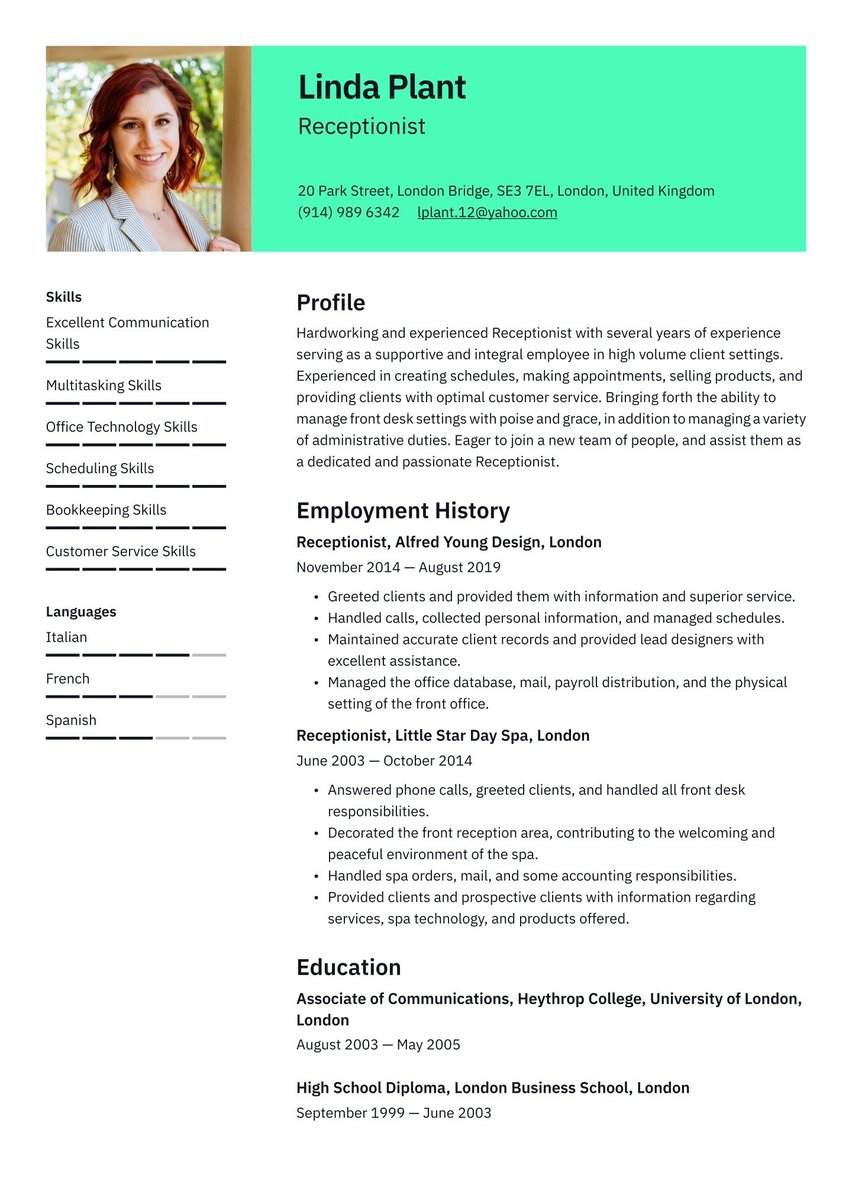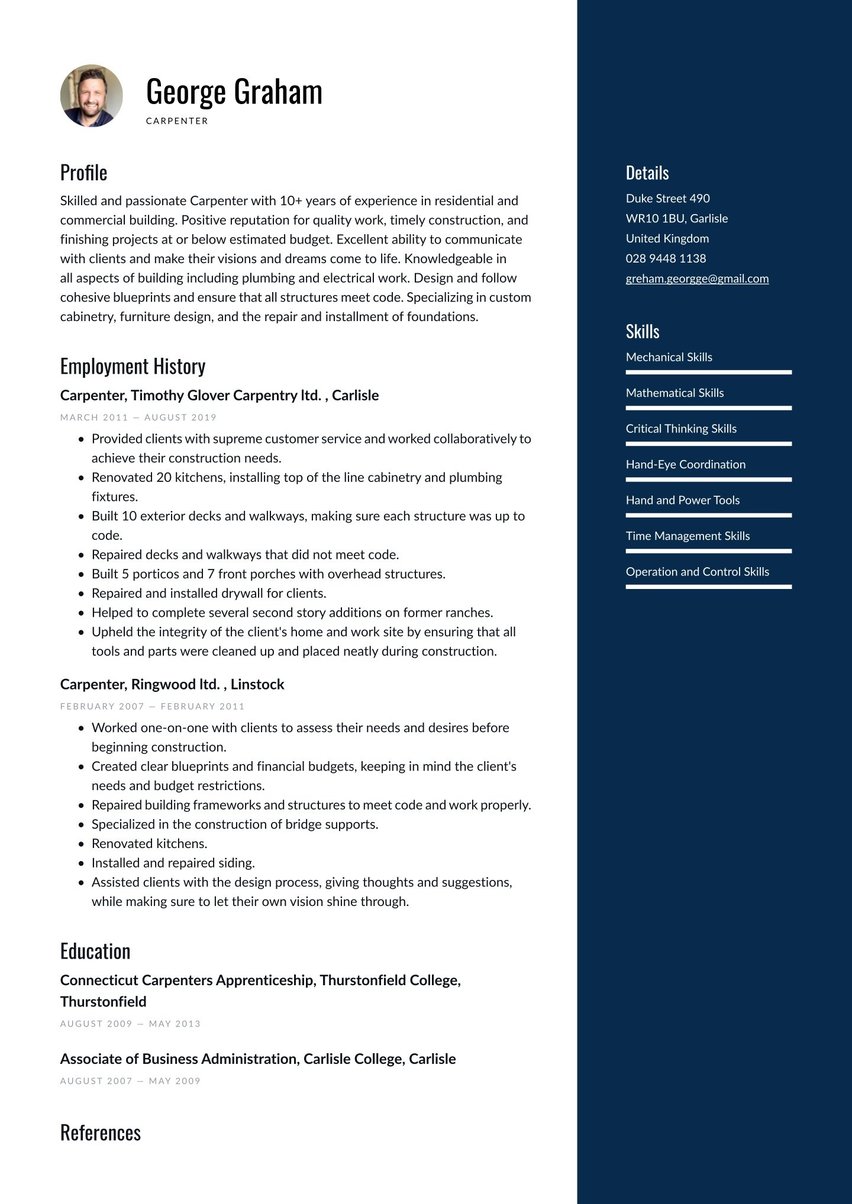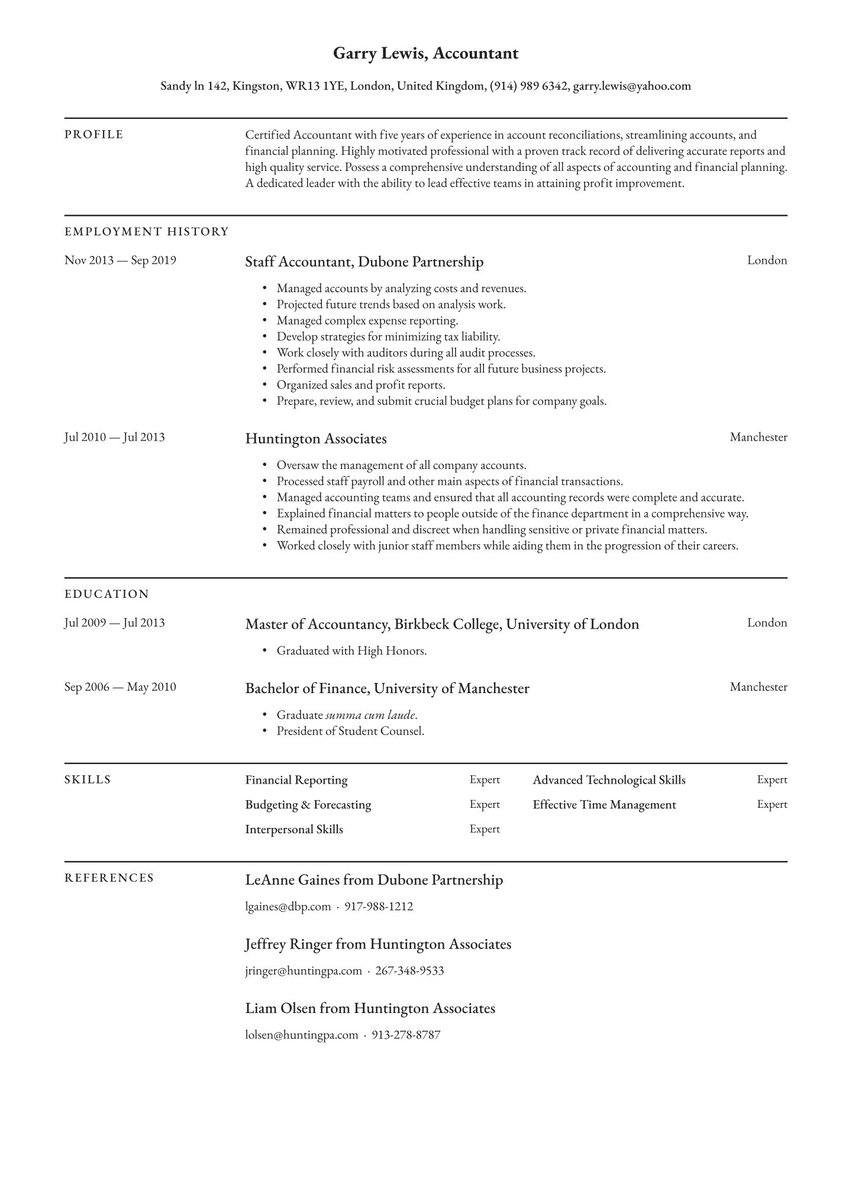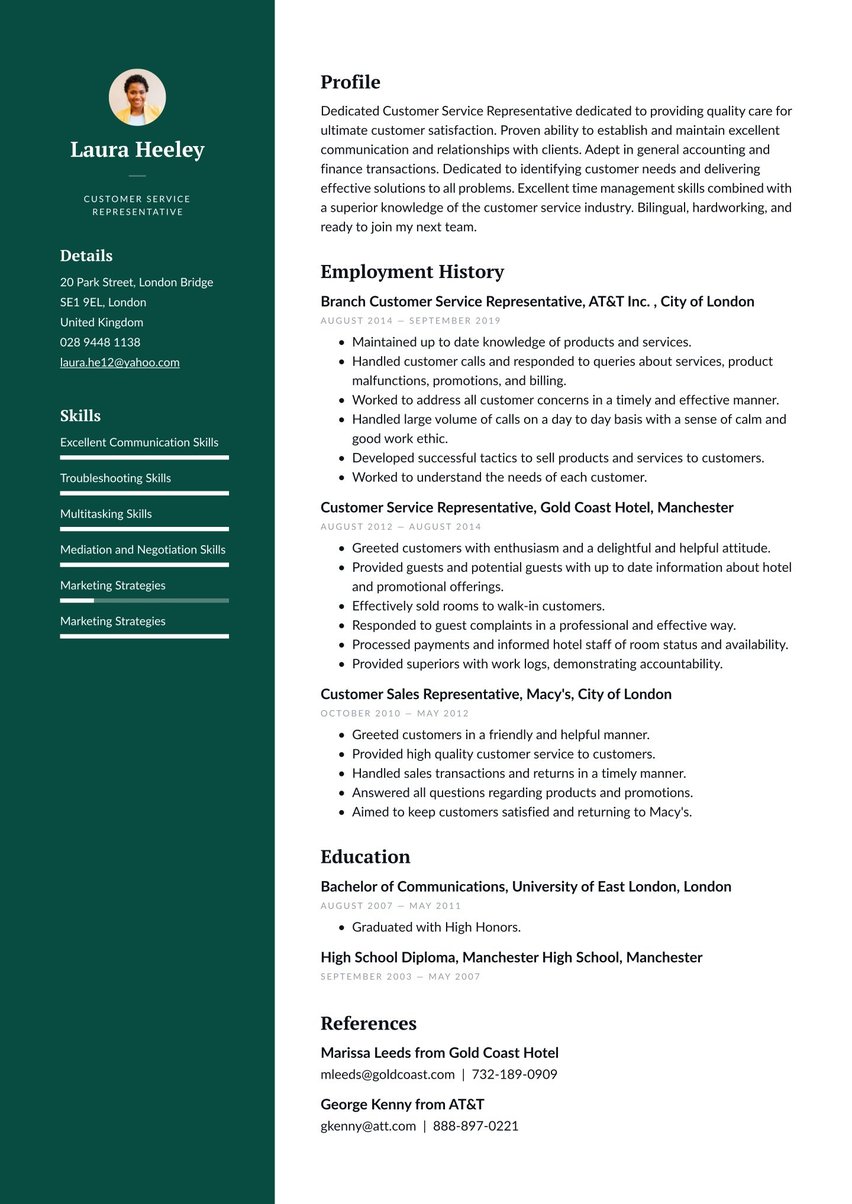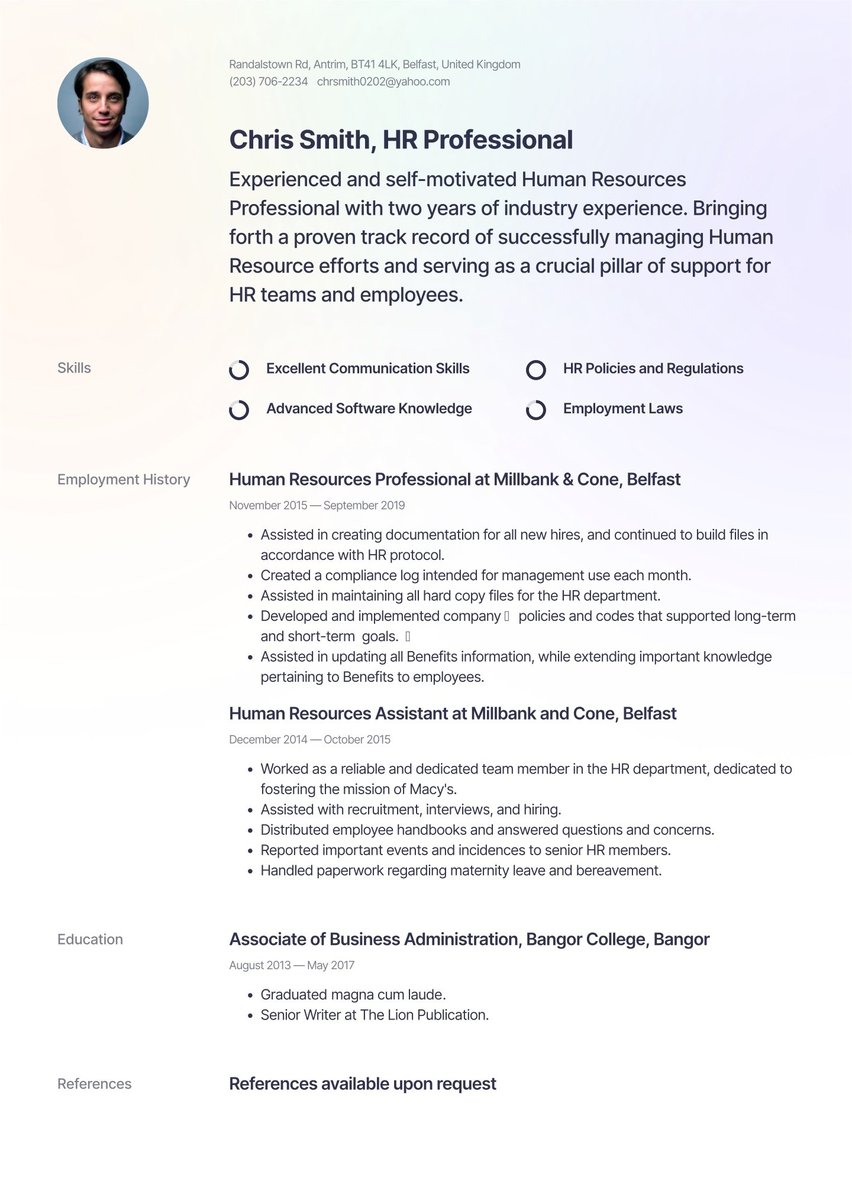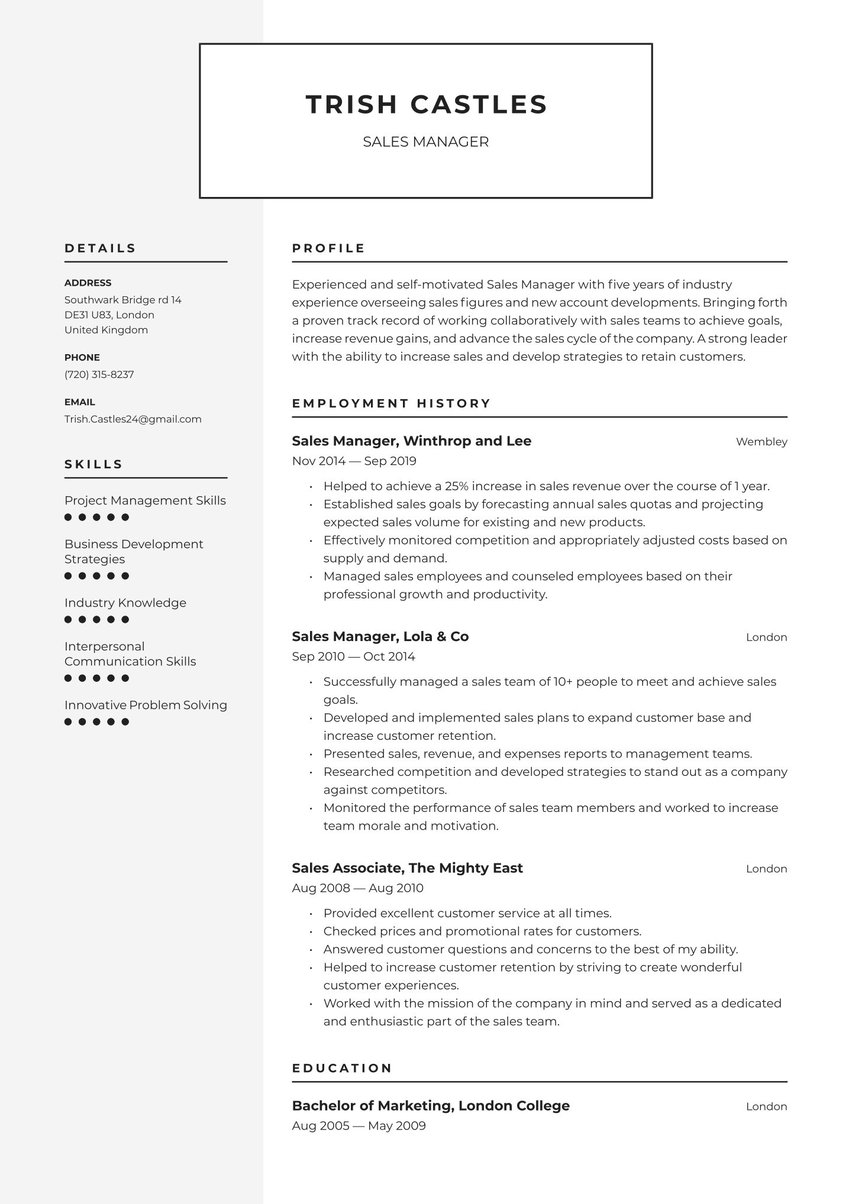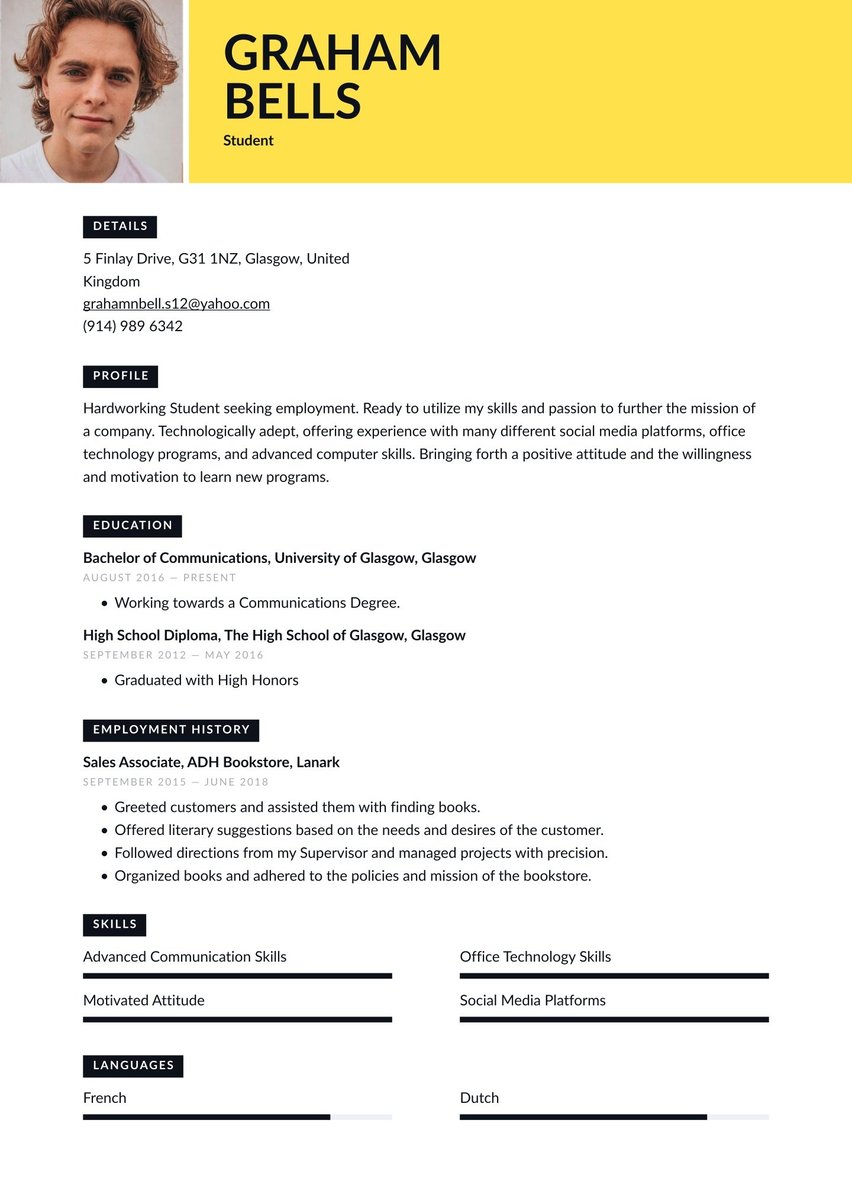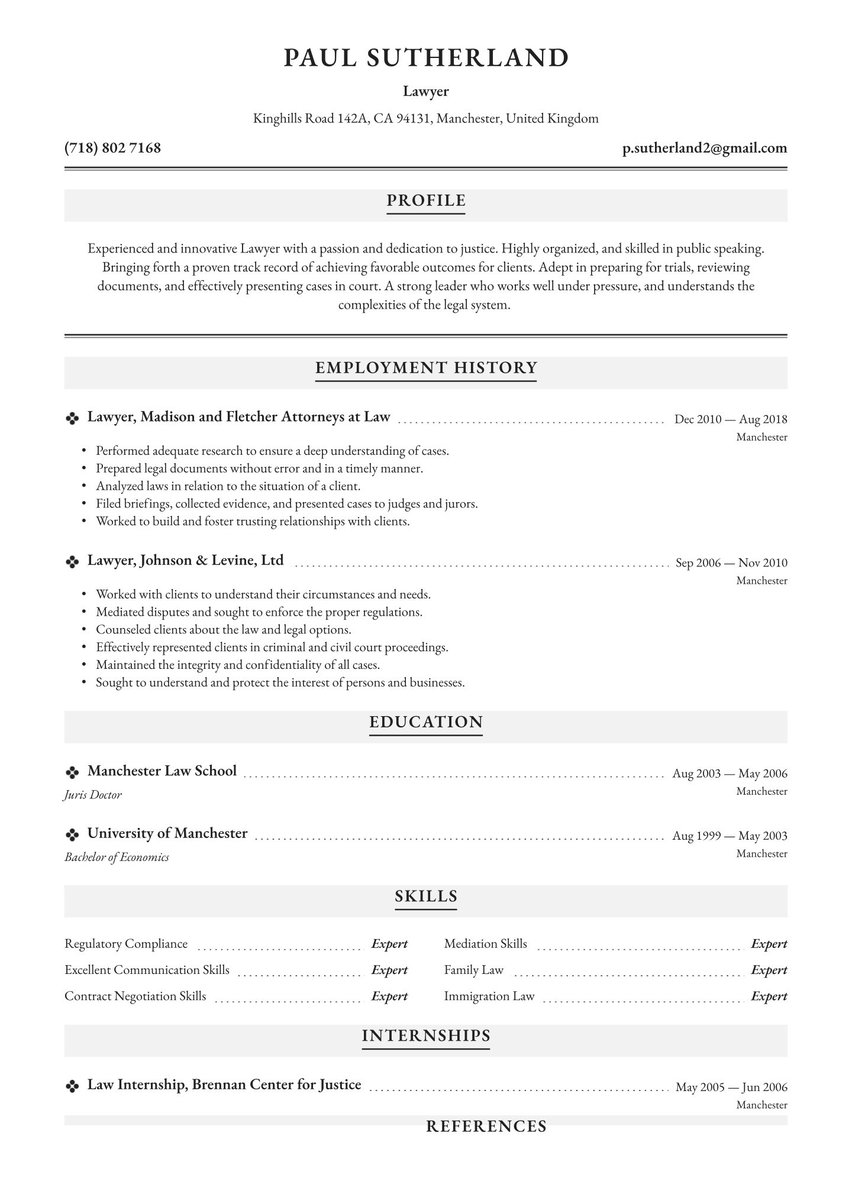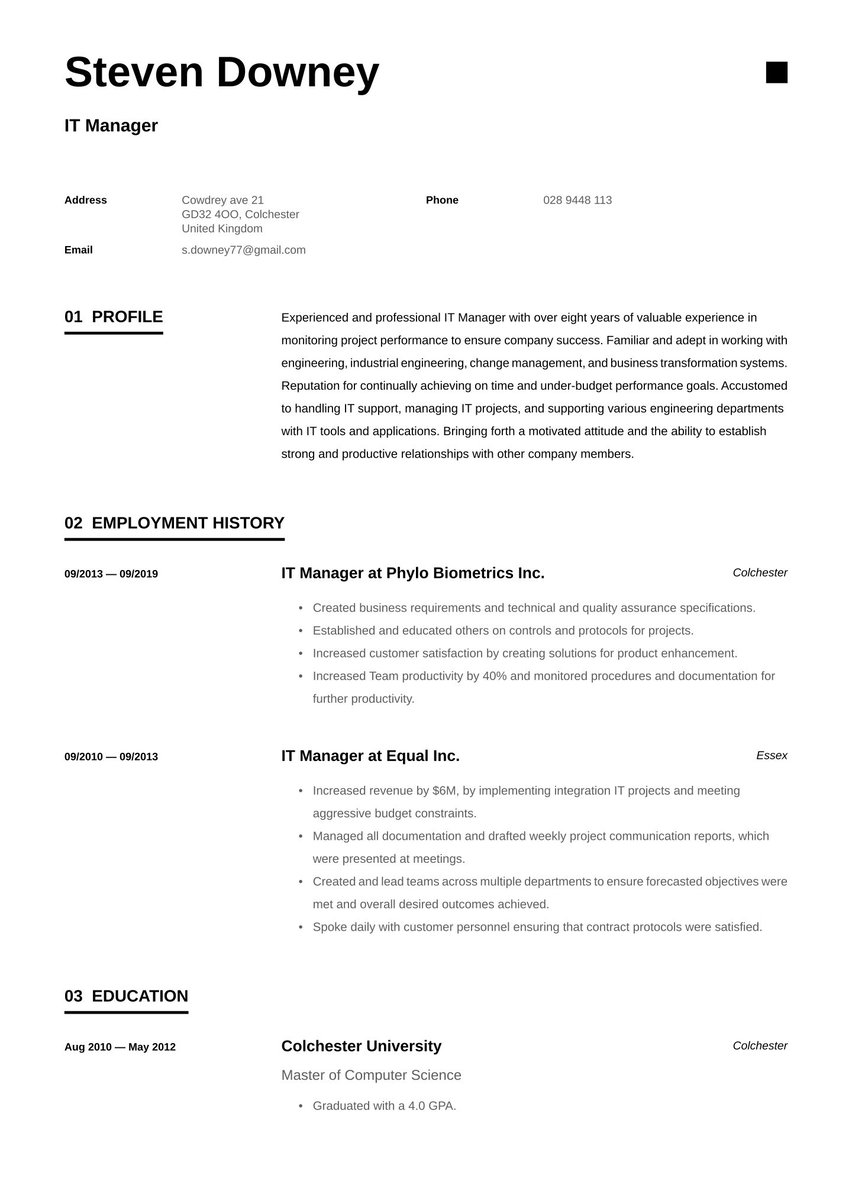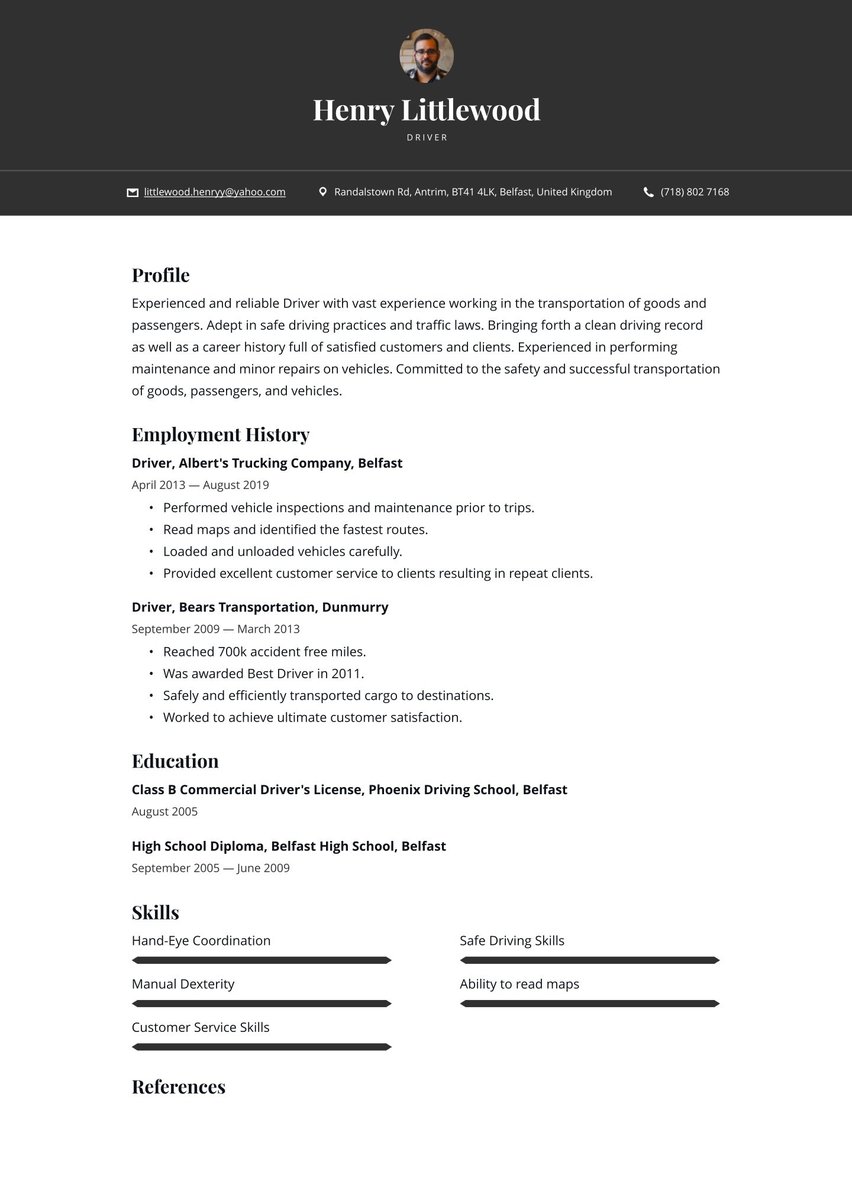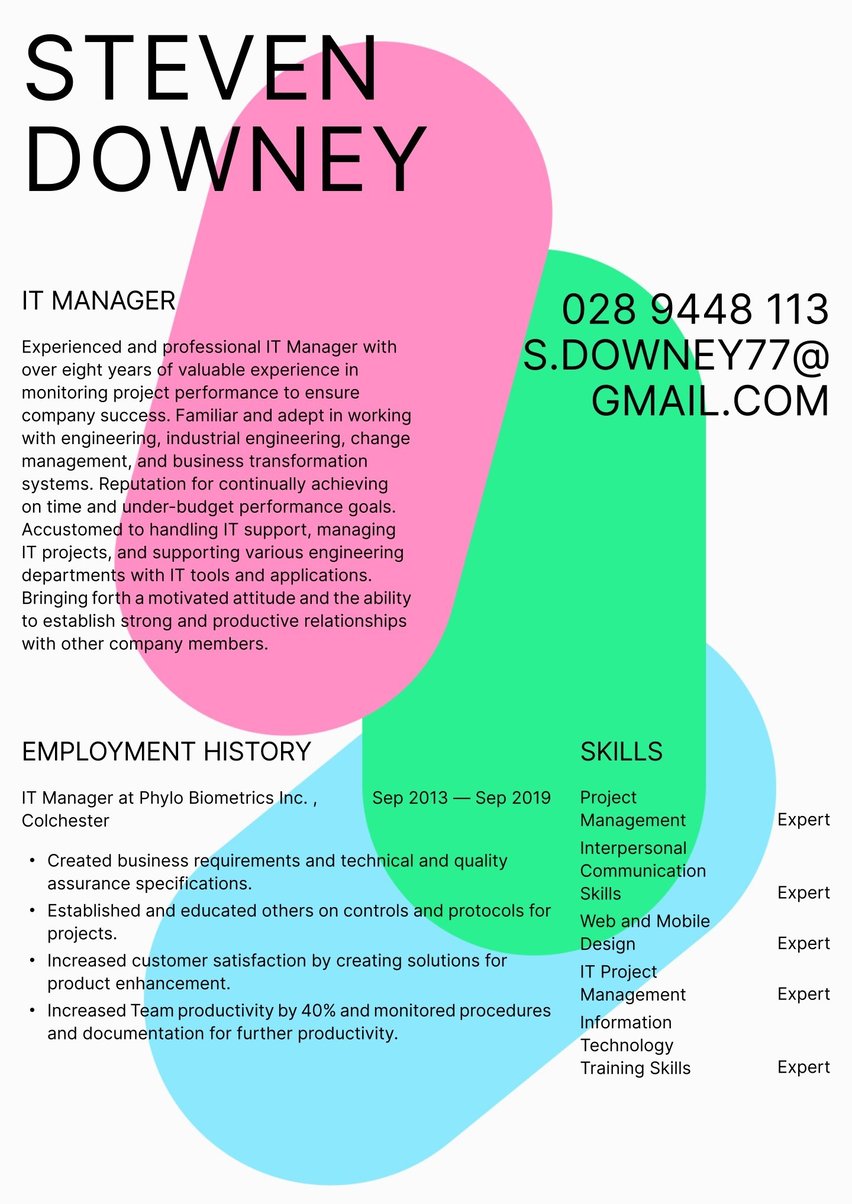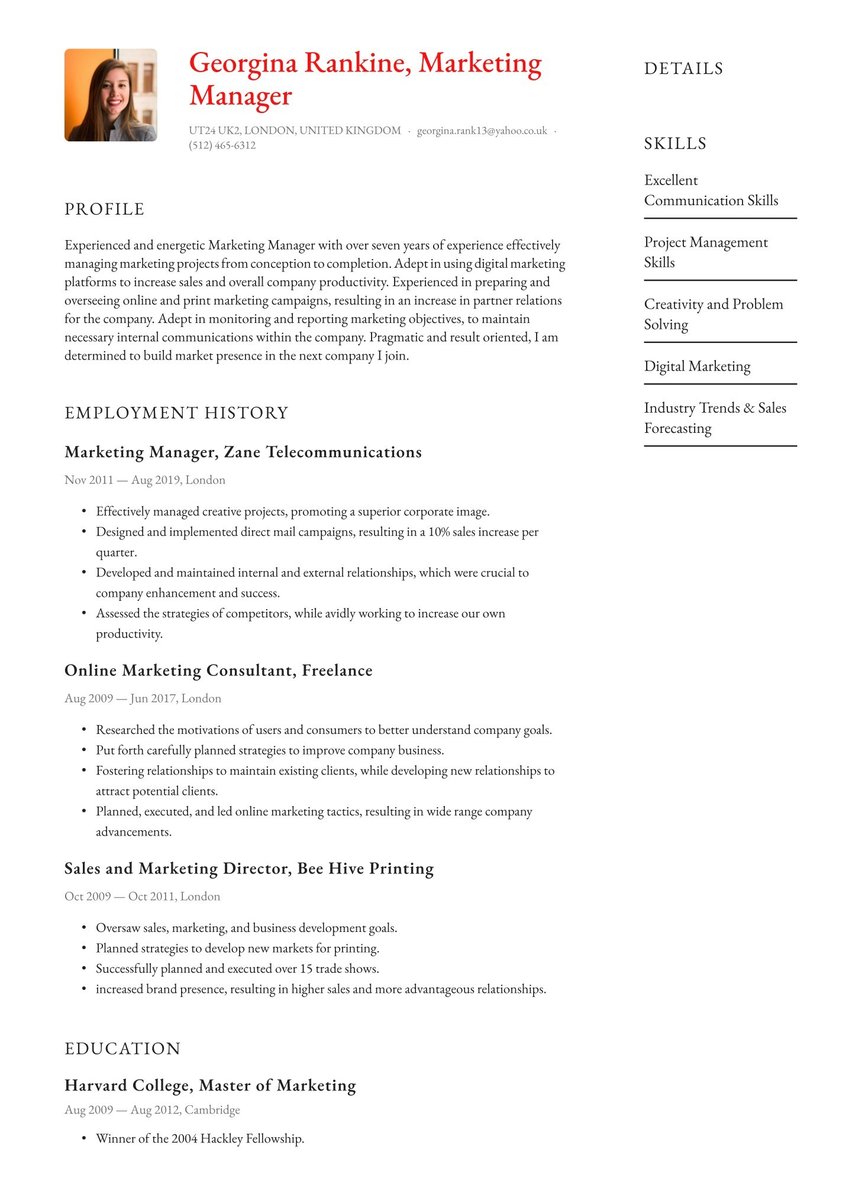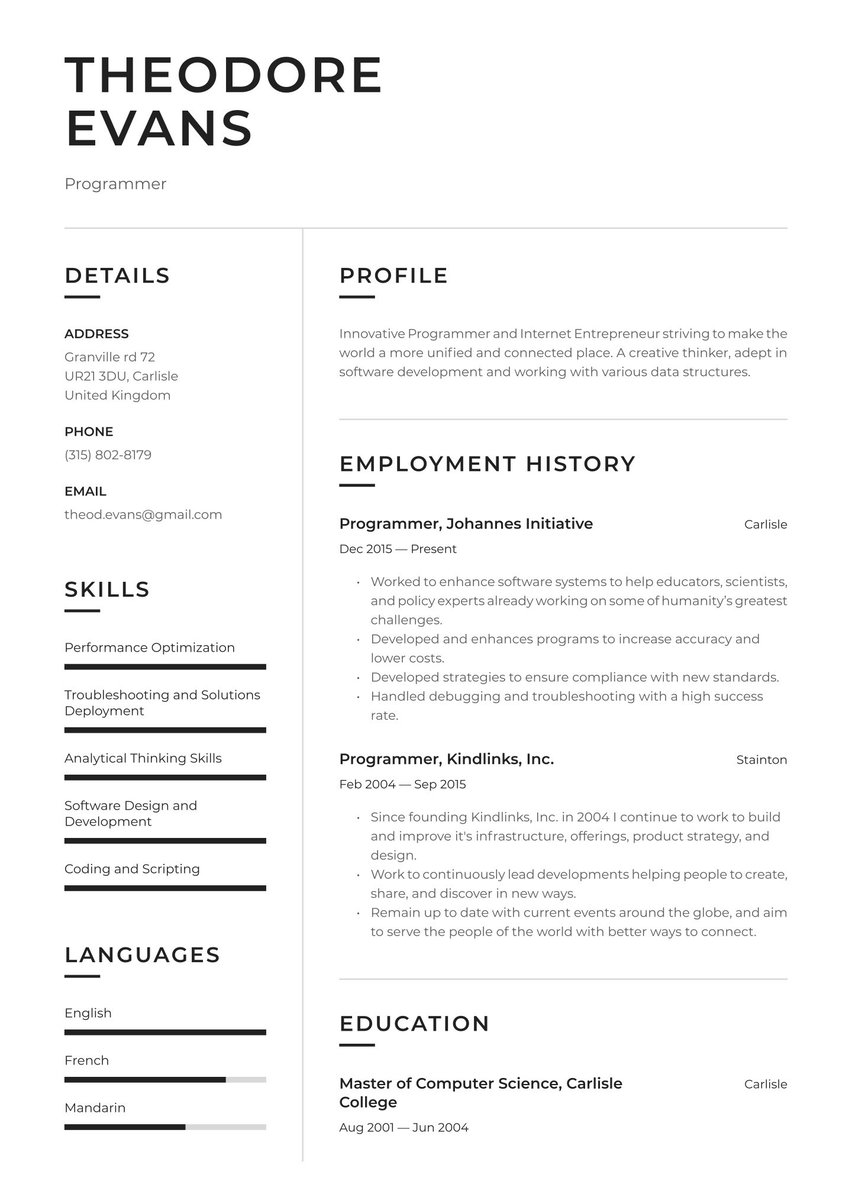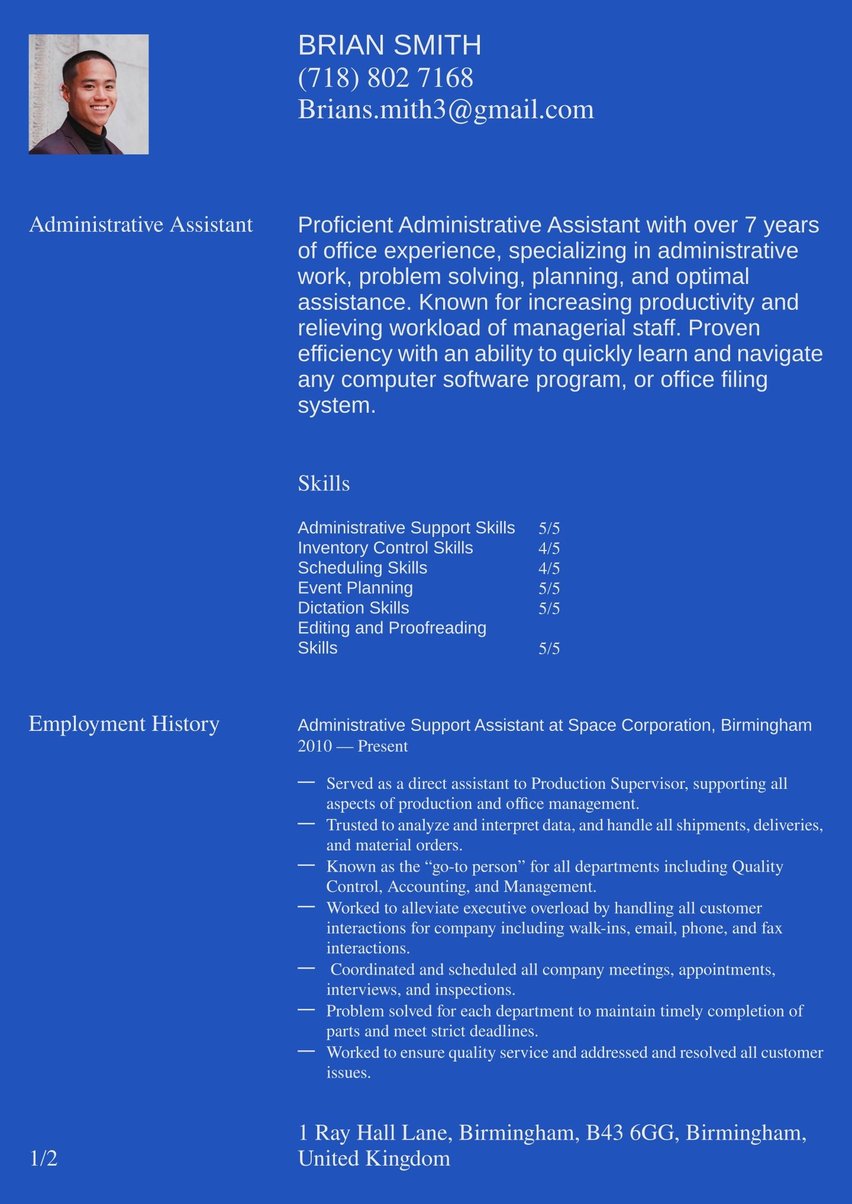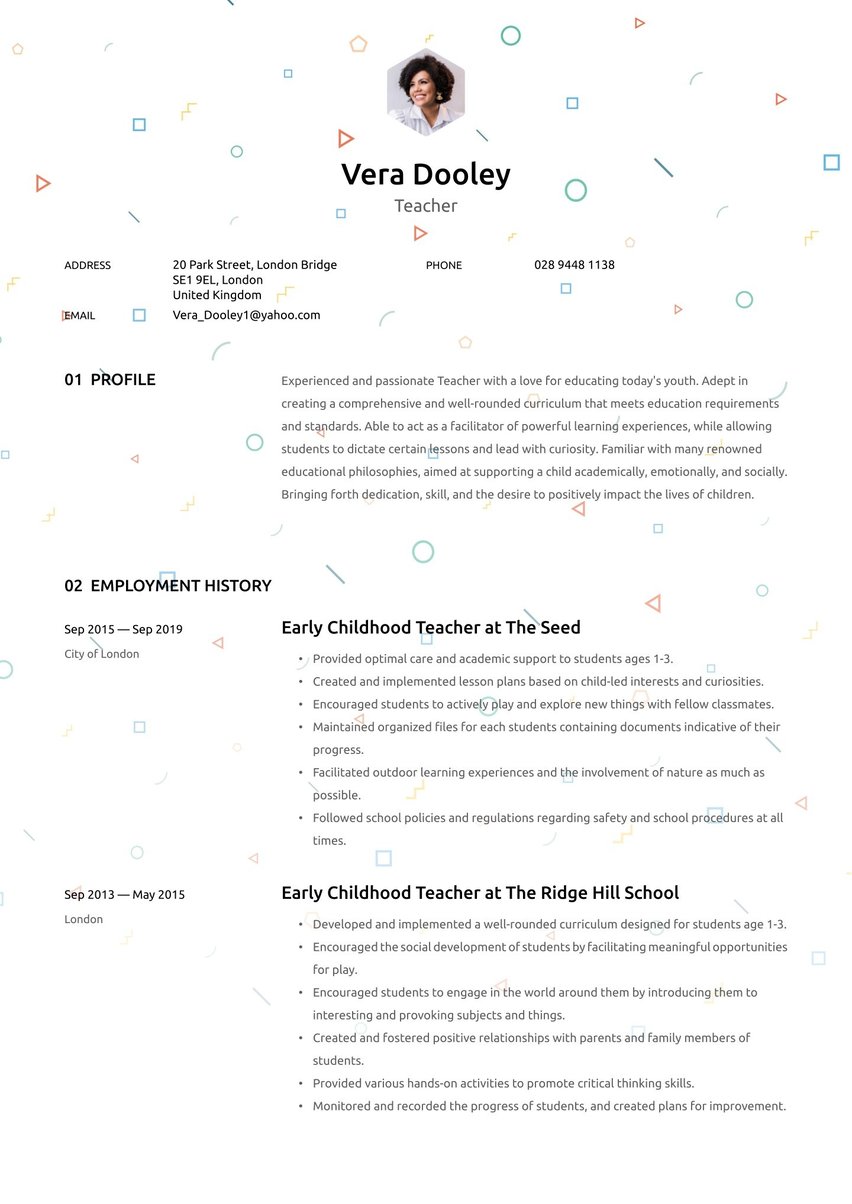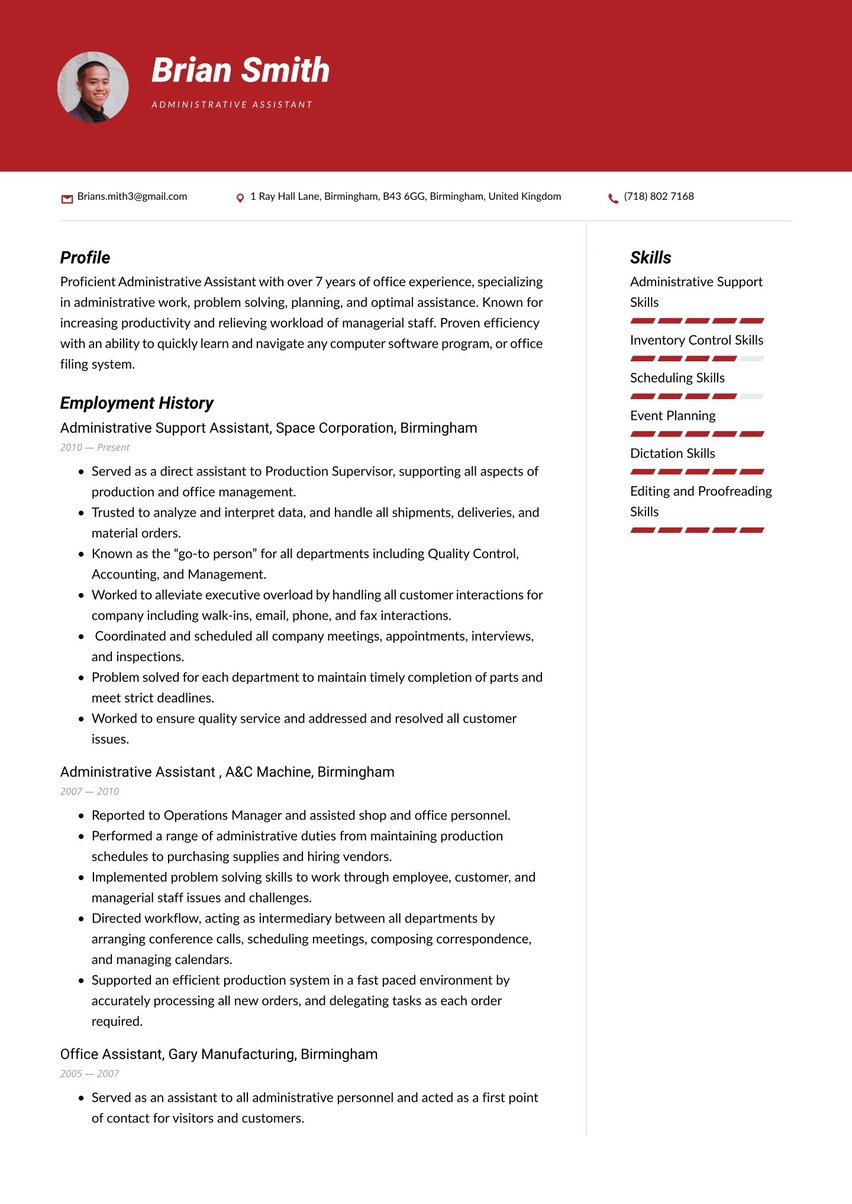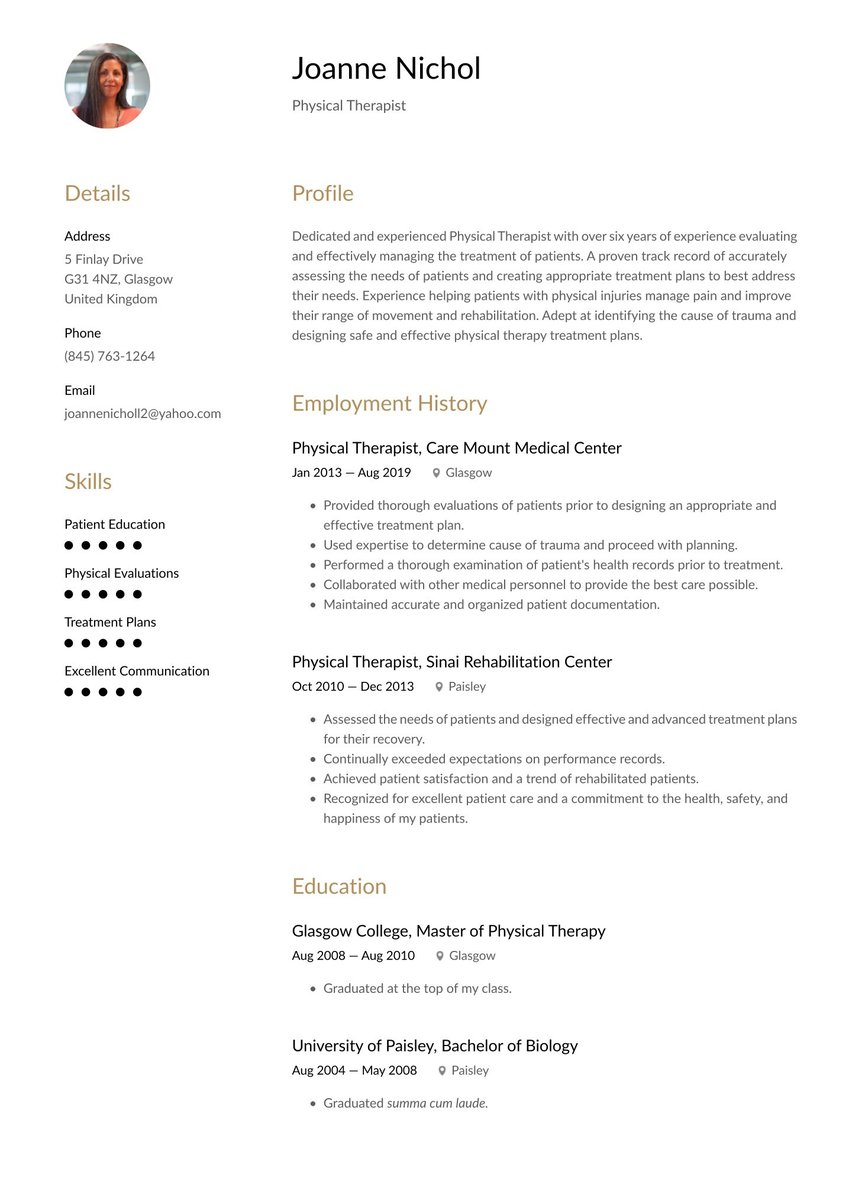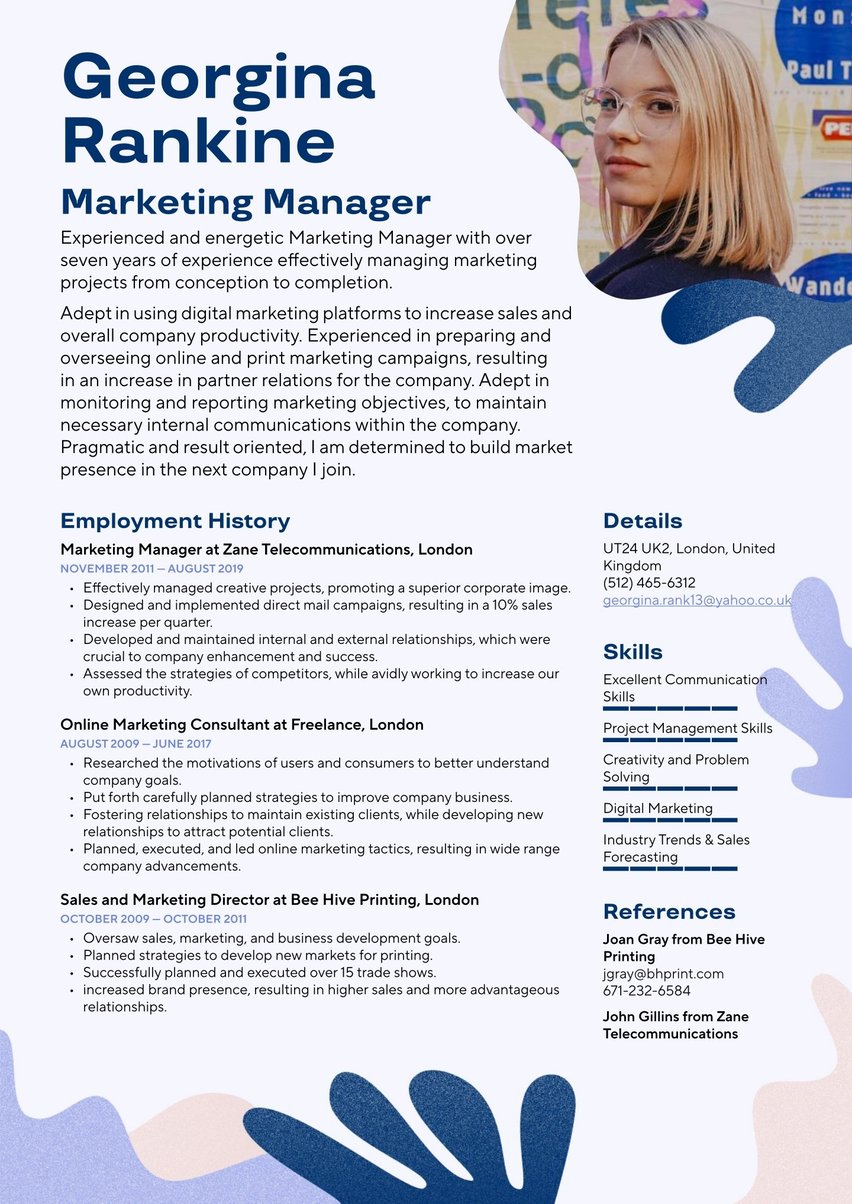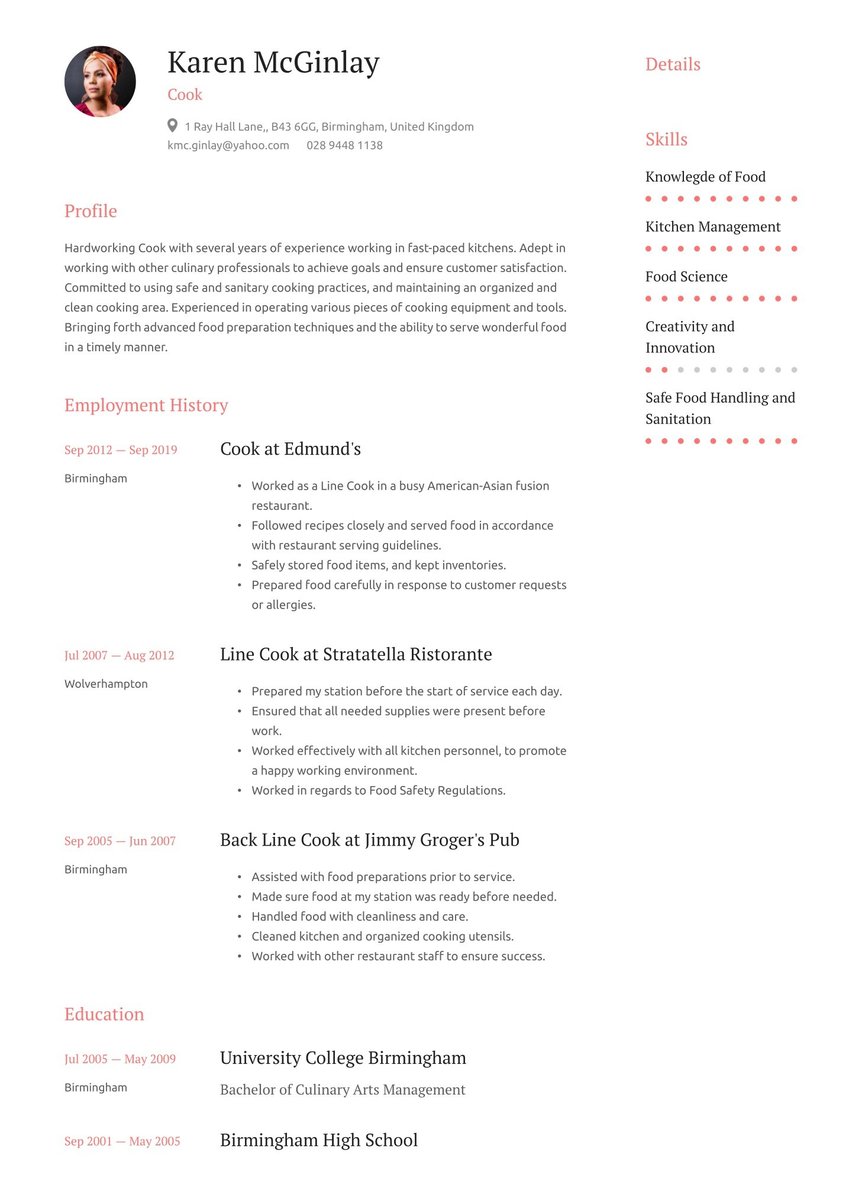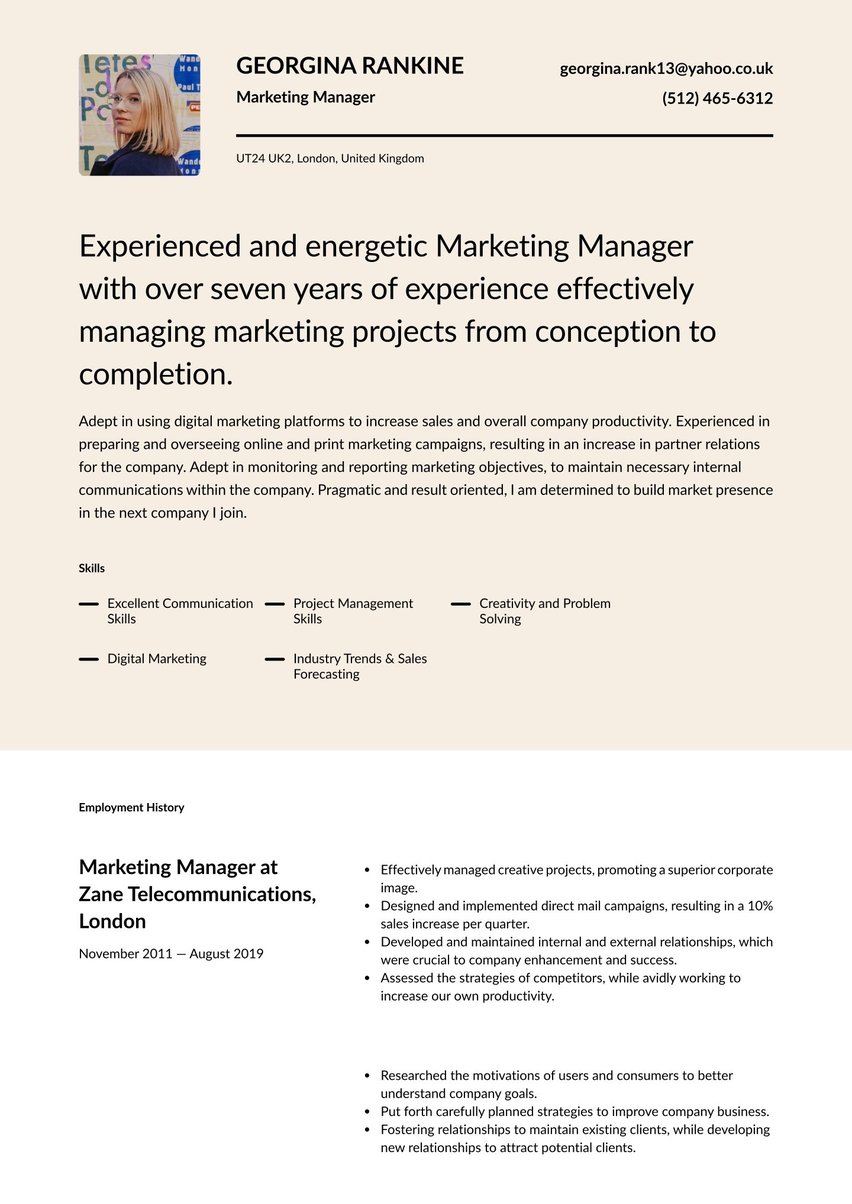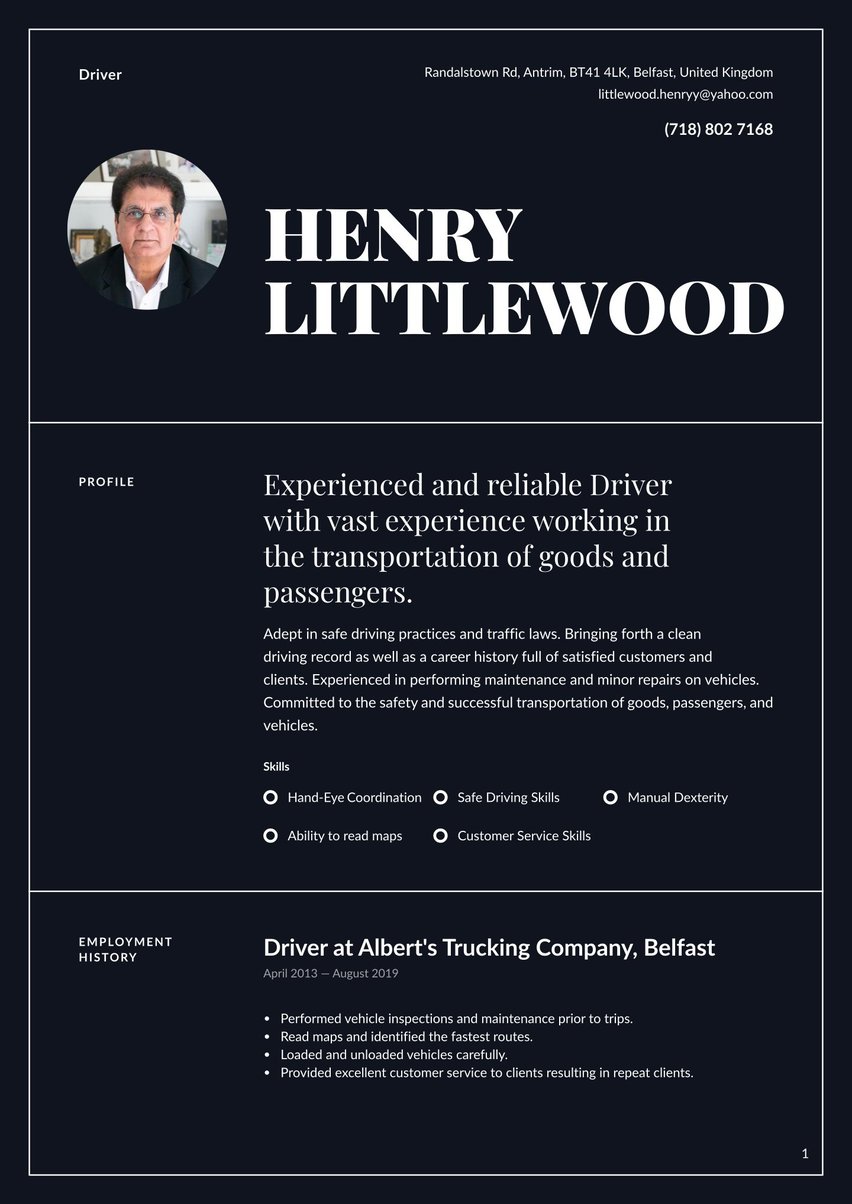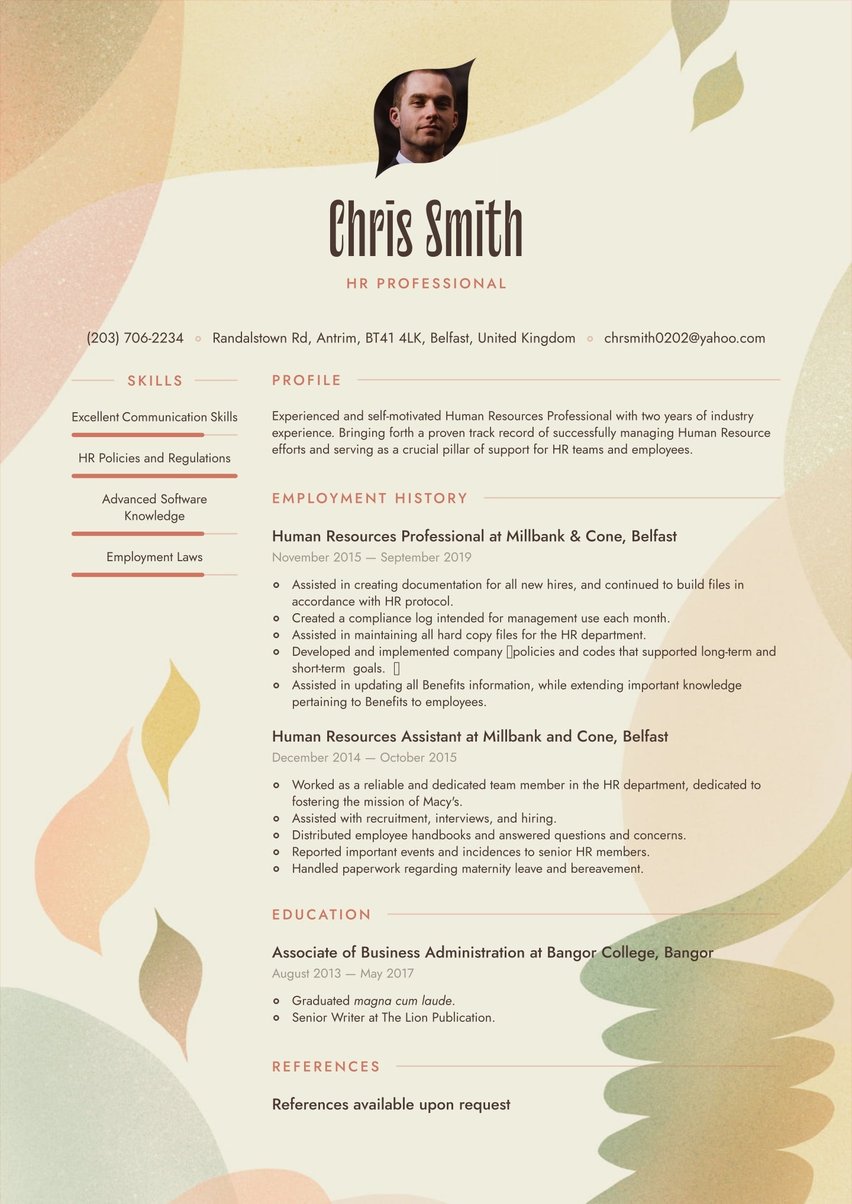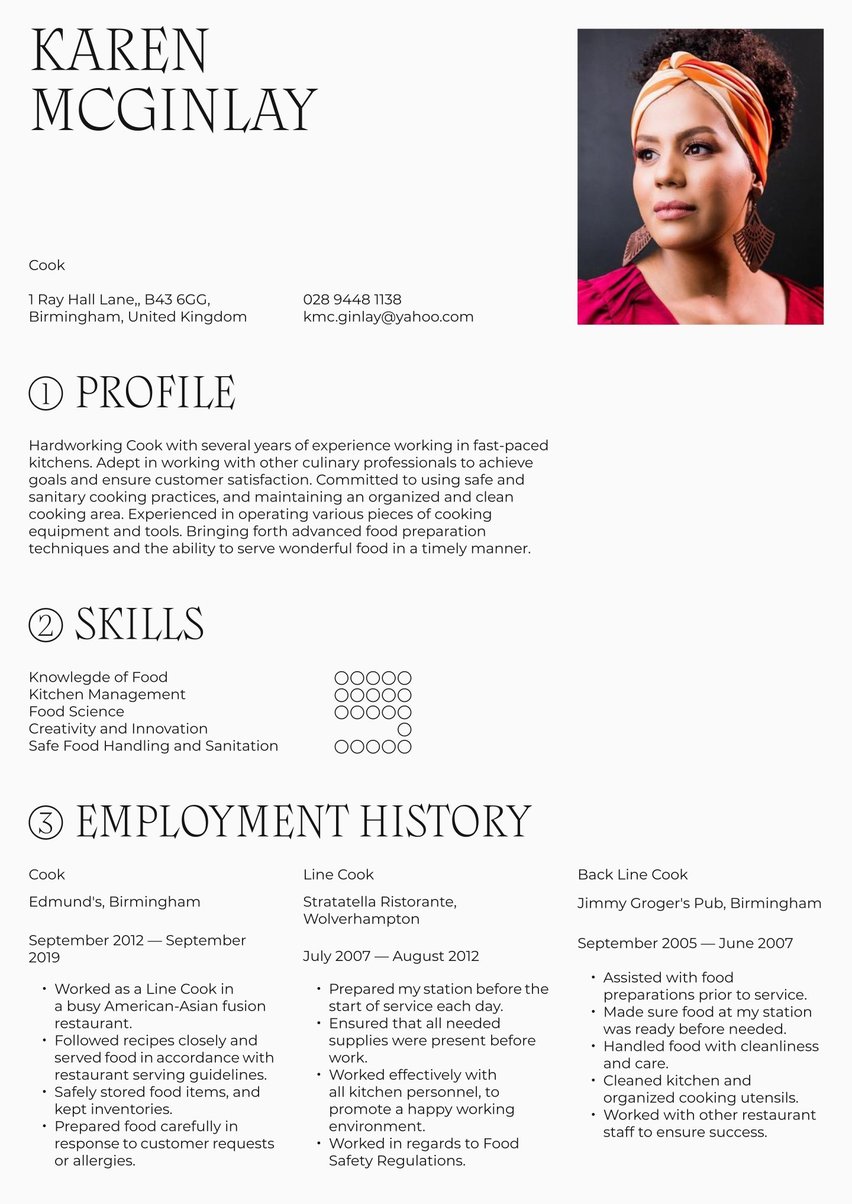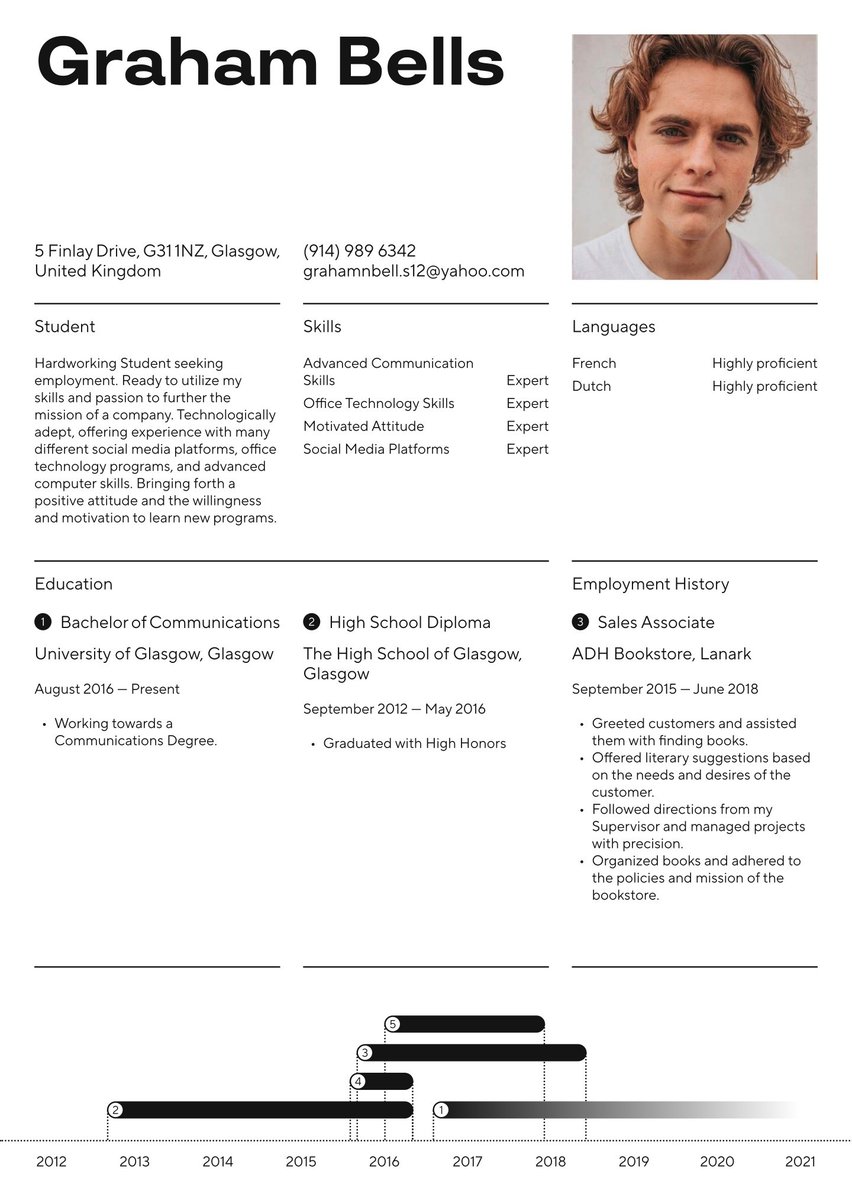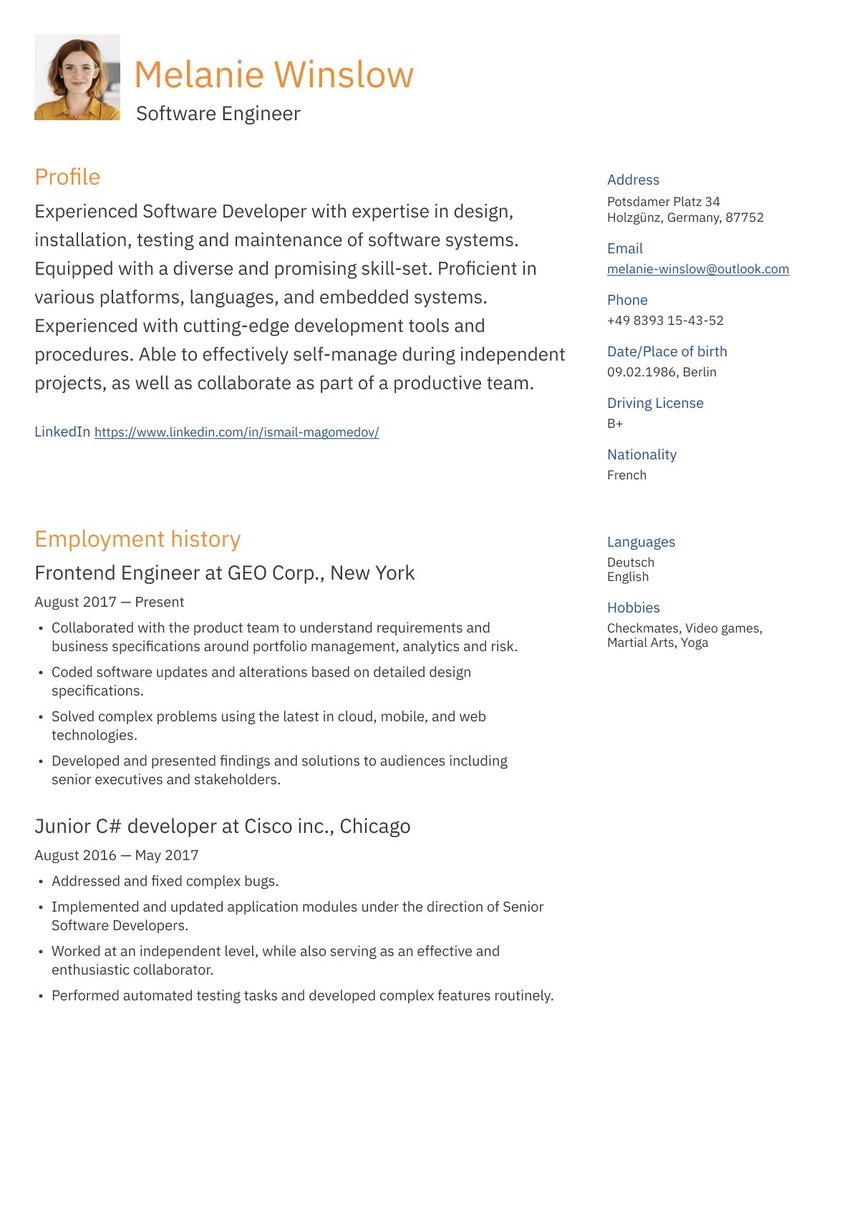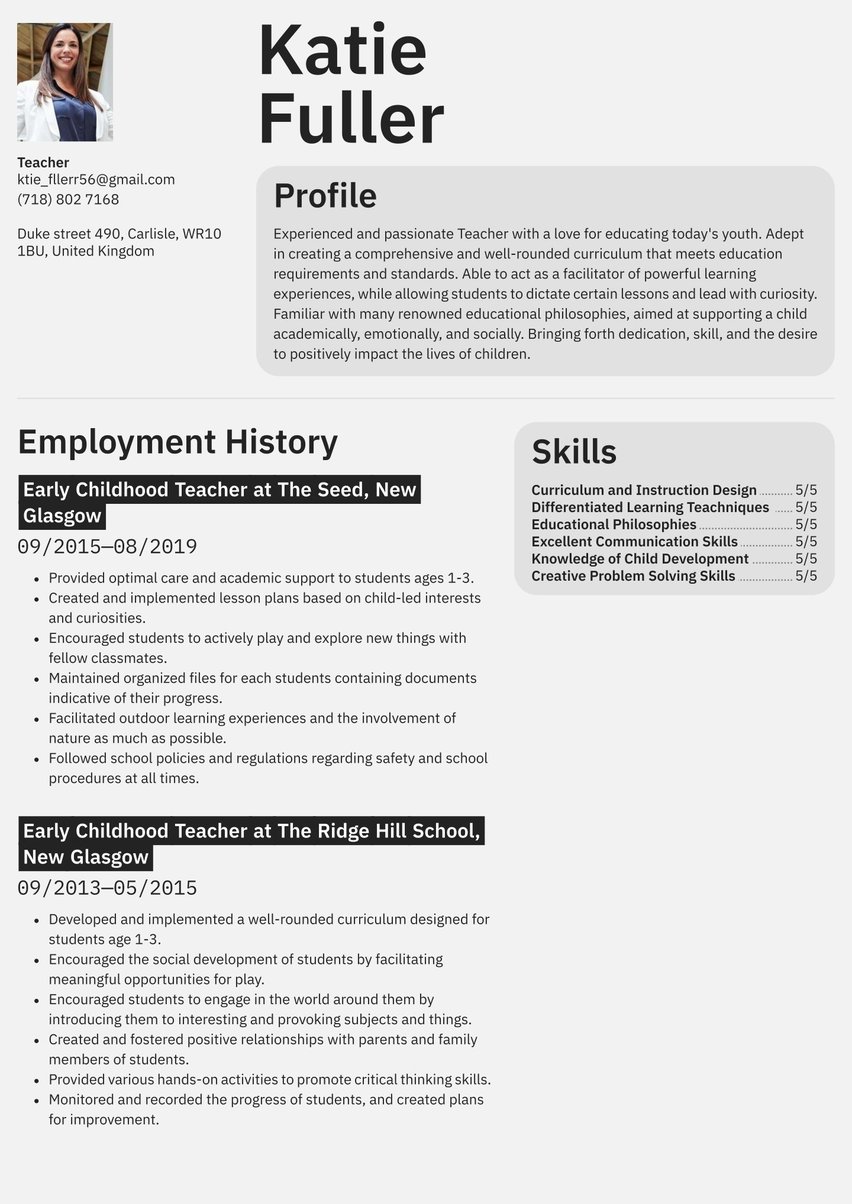Diligent and detail-oriented editorial assistant with 3+ years of experience supporting editors and authors at leading London publishing houses. Proficient in proofreading, copyediting, and manuscript preparation. Skilled in managing multiple projects simultaneously while maintaining high-quality standards. Excellent communication and collaboration abilities.
09/2020 - present, Editorial Assistant, Bloomsbury Publishing, London
- Assist editors with proofreading and copyediting manuscripts for fiction and non-fiction titles
- Liaise with authors, agents, and internal departments to ensure smooth editorial processes
- Monitor and update editorial schedules and deadlines
- Conduct research to fact-check manuscripts and provide editorial support
06/2019 - 08/2019, Publishing Intern, Penguin Random House, London
- Supported editorial team with proofreading and administrative tasks
- Assisted in evaluating manuscript submissions and providing reader reports
- Participated in editorial meetings and gained exposure to the publishing process
09/2016 - 06/2019, Bachelor of Arts (Hons) in English Literature, 2:1, University College London, London
- Proofreading and Copyediting
- Attention to Detail
- Written and Verbal Communication
- Microsoft Office and Adobe Acrobat
- Chicago Manual of Style and Oxford Style Guide
09/2017 - 06/2019, Editor, UCL English Department Blog,
Pursuing a career as an editorial assistant enables you to combine your passion for the publishing industry with an exciting job where no two days will be the same.
But, the publishing sector is super competitive, so you’ll need to leverage your editorial assistant CV to your best advantage to land the best opportunities.
Editors will be looking for assistants who can perform creative and clerical tasks that ensure the delivery of high-quality content to their readers. So, how can you get this message across? By applying your strong communication skills, and using our expert CV guide, to tell a compelling story of why you’re the perfect editorial assistant for the job.
CV guide for an editorial assistant CV
Elevate your job search with Resume.io. Our expert guides and CV examples span more than 150 professions, and our CV builder makes the process of creating a job-winning CV a breeze.
This CV guide and the accompanying editorial assistant CV example will cover:
- How to write an editorial assistant CV
- Choosing the right CV format for an editorial assistant
- How to add your contact information
- Using summaries
- Adding your editorial assistant experience
- Listing education and certifications
- Picking the right CV design/layout
- What the job market looks like for editorial assistants
How to write an editorial assistant CV
As an editorial assistant, you know better than anyone how important structure is in a piece of writing. A great structure ensures a story (and a CV!) is easy to follow and digest. Here are the key elements you need to include:
- The CV header
- The CV summary (aka profile or personal statement)
- The employment history section
- The CV skills section
- The education section
Think of your CV as an opportunity to tell your career story. This should be written in a compelling way so that it attracts the hiring manager's attention and positions you as the ideal editorial assistant for the job.
Publishing houses are looking for candidates who can expertly manage both editing and administrative demands while working collaboratively to ensure a smooth workflow. Demonstrating that you possess these skills in spades via your CV will show that you understand the purpose of the role and are enthusiastic about being part of the team.
Follow this winning formula to convince an editor to give you a shot:
- Highlight accomplishments across your CV. Rather than simply listing tasks completed, explain what you have achieved. For example, instead of stating that you edit manuscripts, you could explain how you applied your structural editing skills to collaborate with authors and enhance manuscripts.
- Tailor your CV for each job opportunity. Gather as much information as you can about the job advertised and the hiring company so you can tailor your CV and demonstrate that you genuinely want to work there.
- Stick to a clean, simple, and professional design for your CV. Overcomplicated and design-heavy CV formats can be confusing and don’t exude professionalism.
- Optimise your CV. Beat the bots by using the right keywords and phrases so that applicant tracking systems (ATS) rank your CV higher.
Enhance your CV for ATS
Applicant tracking systems make it quicker and easier for employers to manage incoming job applications. This software uses keyword trackers to identify and rank candidates against the specific requirements of the job description. If you rank highly, you’ll get noticed.
Here’s an example of the criteria for an editorial assistant job posting:
- “Editorial assistant”
- “2+ years of experience proofreading and copyediting”
- “Strong communication skills”
Including the above keywords in your profile might read as follows:
“Creative and proactive editorial assistant, holding 2+ years of experience in proofreading and copyediting for reputable publishing houses. Strong communication skills, applied to perform editorial duties and collaborate with authors, colleagues, and editors.”
Choosing the right CV format for an editorial assistant
Selecting the right format for your CV will depend on your unique situation. Whether you have zero experience, pursuing a career change, or are a seasoned editorial assistant, there’s a format out there for you!
Reverse-chronological is the most popular CV format for a candidate with previous experience because it presents your career history in a clear and organised way. Recruiters can quickly find your key skills and work experience and also view a timeline of progression in the workplace.
When you’re just starting in the publishing world, you probably don’t have a lot of work experience to detail. In this case, consider using the functional (or skills-based) CV. This format shifts the focus from work experience to transferable skills and qualifications.
Sometimes, you may need a format that meets in the middle. If you’re a career changer or have gaps in employment, then the hybrid (combination) CV format offers a great solution. This format places equal weight on key skills and work experience.
If you want to check out these formats in action, take a look at our CV templates and select the format that best suits your situation.
Include your contact information
Start off by creating an eye-pleasing CV header. While this may seem like a minor section on your CV, it’s the first thing a hiring manager will see, so it needs to set the right tone.
Make sure you use the same header design for your cover letter. This presents both documents as a matching pair and shows your attention to the finer details. Here’s what you need to include in this section:
- Full name & title. Include your first and last name, followed by the role title.
- Professional email address. Rather than a quirky email address, keep it simple by using this format: firstname.lastname@email.com.
- Phone number. Add a phone number where you can easily be reached. Double-check check your voicemail message is professional.
- Location. Provide your city or location. You no longer need to include a full address.
- LinkedIn. Include your LinkedIn profile URL and ensure your profile is updated and consistent with your editorial assistant's CV.
Don’t include:
- Date of birth: This can lead to age discrimination issues.
- Personal details: Avoid including personal details, such as marital status, number of kids, or your passport number.
Rosie Hughes
Editorial Assistant
020 1234 5678
rosie.hughes@email.com
Rosie Hughes
Proofreading Expert
02012345678
rosieposie@email.com
Make use of a summary
Similar to a compelling introduction to a manuscript, your summary is a chance to engage the reader by highlighting your editorial talents with a twist of personality.
In these opening 3-4 sentences, you’re introducing yourself to the employer as the editorial assistant that can add value to their publishing business. A well-crafted summary will present your editorial and administrative skills and strengths in the best possible light. If you’re able to reference a connection to the employer or niche experience then mention this too. This will strengthen your candidacy and is bound to pique the hiring manager’s interest.
Action verbs are a great tool that you can use to elevate your opening summary. Stick to simple past and present tense, then sprinkle these terms in your profile. Examples include delivered, enhanced, steered, revamped, influenced, and accomplished.
Keep your CV summary fresh. Rather than repeating highlights from your CV, your summary should be an elevator pitch that shares your expertise and credentials quickly and effectively. The goal is clear, concise, and compelling. For example, “Inquisitive editorial assistant, with strong writing skills, an eye for design, and enthusiasm for the homes and interiors market.”
Writer's block can be an issue when it comes to starting to write your CV. If you need some inspiration, view our related CV examples:
You can find adaptable editorial assistant CV example summaries below:
Aspiring editorial assistant, with solid knowledge of editing, proofreading, and administrative support gained via a placement with the Kentish Gazette. Strong team player and excellent communicator, with a passion for news and debate across various media platforms.
Proactive editorial assistant, with 3+ years experience overseeing a portfolio of children’s book titles from initial contract to publication. Articulate communicator with the ability to build positive relationships with authors and editors. Tech-savvy, with a strong awareness of new and emerging trends in the children’s book industry.
Seasoned editorial assistant, with 10 years of experience managing editorial teams, crafting content strategies, and editing and proofreading content for accuracy and style. Steer projects for multiple publications from conception to completion, working to tight deadlines and exacting standards. Achieved a 30% reduction in errors in the past six months.
Outline your editorial assistant work experience: your career story
Once you’ve hooked the hiring manager with your summary, they’ll be keen to learn more about any practical work experience you’ve secured as an editorial assistant.
The concept of the three C’s —clear, concise, and compelling— applies here too. Just include experience relevant to your target role and don’t go too far back in time. A work history period of no more than 10-15 years is the best approach for most professionals.
Start by listing the job title, employer name, location, and dates of employment in a bold subheading. Then, create a list of 4-5 bullet points of core responsibilities and achievements, with quantifiable results and positive outcomes included where possible.
Task-related statements in your work history section could relate to thousands of editorial assistants applying for a job. They don’t show what you have achieved or the unique value you can offer the employer. For example, avoid listing job duties as follows:
- “Responsible for copyediting and proofreading manuscripts.”
- “Liaised with authors, agents, and internal teams.”
- “Attended editorial and quality improvement meetings.”
Instead, offer insight into what you have achieved as an editorial assistant by describing measurable and beneficial results, such as:
- “Won Editorial Assistant of the Month twice in recognition of optimal copyediting skills and high proofreading accuracy levels.”
- “Built positive relationships with authors, agents, and internal teams to ensure smooth workflow and timely publications.”
- “Contributed to the successful implementation of a new content management system that reduced time spent on content planning by 40%.”
Check out the editorial assistant employment history CV sample below:
Editorial Assistant at Bloomsbury Publishing, London
September 2020 - Present
- Assist editors with proofreading and copyediting manuscripts for fiction and non-fiction titles
- Liaise with authors, agents, and internal departments to ensure smooth editorial processes
- Monitor and update editorial schedules and deadlines
- Conduct research to fact-check manuscripts and provide editorial support
Publishing Intern at Penguin Random House, London
June 2019 - August 2019
- Supported editorial team with proofreading and administrative tasks
- Assisted in evaluating manuscript submissions and providing reader reports
- Participated in editorial meetings and gained exposure to the publishing process
How to write an editorial assistant CV with no experience
Crafting a CV with zero experience as an editorial assistant can be challenging, but with the right approach, it is possible to create a strong CV that highlights your skills and potential.
The trick is to focus on your transferable skills. While you may not have direct experience working as an editorial assistant, you likely have a multitude of skills and abilities to bring to the role. For example, working as a waiter in a restaurant will equip you with strong communication and organisation skills - both traits of a talented editorial assistant.
Highlighting your passion for writing and editing can also help you get a foot in the door. Completing proofreading or editing certifications, attending publishing events, working on the school newspaper, or writing a blog will underpin your enthusiasm for the publishing world.
Apply your editorial attention to detail to your CV
Employers will view any mistakes in your CV as a red flag. Proofread your CV multiple times to eliminate any spelling mistakes, grammatical errors, or inconsistencies. Consider using tools such as Grammarly or asking someone to review your CV as additional checks.
Include the relevant key skills that make a great editorial assistant CV
Your skills section should be short and sweet. Don't be tempted to create a laundry list of skills on your CV, as including irrelevant skills can be detrimental to your application. Aim for no more than six skills and select these based on the information provided in the job description.
A good approach is to Include a mix of hard skills and soft skills. Hard skills for an editorial assistant could include editorial planning, research, copyediting, and proofreading. Soft skills such as communication, organisation, and attention to detail will be on the recruiter’s radar.
Here’s what the skills box looks like in our CV template for editorial assistants.
Key Skills and Proficiencies
Showcasing your expertise in a skills section is important, but so is Incorporating these skills across your CV. When placed in context, this will demonstrate your skills in action and boost your credibility with an employer.
For example, your employment history section and CV profile could include:
- Organisation skills by describing how you successfully manage multiple tasks simultaneously via personal routines and creating checklists.
- Creativity by explaining how you contribute ideas and suggestions in editorial meetings and maintain an awareness of new and emerging industry trends.
- Communication skills by sharing how you engage positively with authors and editors.
Refer to the job description and key skills that are emphasised as important when deciding what information to include.
Detail your education & relevant editorial certifications
While there is no specific requirement for an editorial assistant to complete a degree or HND, this can improve your chances of getting a job. Studies completed in the areas of arts and humanities (particularly English), journalism, media, communications, or business studies should be included in your education section.
List any degrees or diplomas in reverse chronological order, including the subject, educational institution, and dates. If you haven’t completed a degree, then simply list your secondary school and any college education.
This section also offers a great opportunity to list any training and professional development activities. For example,
- Professional training and certifications. Courses, workshops, and conferences enhance your editorial skills. This could include certification as a qualified proofreader, copy-editor, or copywriter in publishing.
- Internships and work placements. If you’re seeking an entry-level role as an editorial assistant, then securing an internship, student placement, or work experience opportunity can help you get started.
- Professional memberships. Consider joining the Publishers Association or the Professional Publishers Association for professional recognition, training opportunities, and to make industry contacts.
- Software and tools. Tech-savvy editorial assistants are in demand. Spotlight expertise in MS Office Suite, Adobe InDesign, and Adobe Photoshop as well as knowledge of content management systems (CMS), social media platforms, and SEO.
Check out the education section from our adaptable CV sample below:
Bachelor of Arts (Hons) in English Literature, 2:1, University College London, London
September 2016 - June 2019
Pick the right CV layout and design for an editorial assistant CV
The visual impression you make in your editorial assistant CV may seem superficial, but it’s equally as important as the written content.
Similar to a well-planned magazine feature, your CV should be attractive, appealing, and allow the reader to quickly find the specific information they are looking for. Clear section headers, clever use of white space, and a professional font work together to achieve these goals.
While a splash of colour here and there is fine on your editorial assistant CV, simple is the best option. Design-heavy formats and quirky visuals could make you stand out for the wrong reasons and can result in applicant tracking systems scanning your information incorrectly.
If your talents relate to the written word, you might prefer to delegate the visuals. Check out our library of tried and tested CV templates to create your very own masterpiece.
Editorial assistant text-only CV example
Profile
Diligent and detail-oriented editorial assistant with 3+ years of experience supporting editors and authors at leading London publishing houses. Proficient in proofreading, copyediting, and manuscript preparation. Skilled in managing multiple projects simultaneously while maintaining high-quality standards. Excellent communication and collaboration abilities.
Employment history
Editorial Assistant at Bloomsbury Publishing, London
September 2020 - Present
- Assist editors with proofreading and copyediting manuscripts for fiction and non-fiction titles
- Liaise with authors, agents, and internal departments to ensure smooth editorial processes
- Monitor and update editorial schedules and deadlines
- Conduct research to fact-check manuscripts and provide editorial support
Publishing Intern at Penguin Random House, London
June 2019 - August 2019
- Supported editorial team with proofreading and administrative tasks
- Assisted in evaluating manuscript submissions and providing reader reports
- Participated in editorial meetings and gained exposure to the publishing process
Skills
- Proofreading and Copyediting
- Attention to Detail
- Written and Verbal Communication
- Microsoft Office and Adobe Acrobat
- Chicago Manual of Style and Oxford Style Guide
Editorial assistant job market and outlook
The future for the publishing sector is looking pretty rosy. Recent research showed the industry is worth an extraordinary £11 billion overall to the economy and the UK is the global leader in book exports. Growth is projected to continue and a further 43K jobs could be created by 2033.
An elephant in the room is of course AI and how this will impact jobs and intellectual property. Organisations, such as the Publishers Association, continue their research and establish priorities for publishing in the future and the protection of IP and human creativity.
What type of salary you can expect as an editorial assistant
The salary range for editorial assistants can range from £18,000 for an entry-level role to £28,000 for more experienced professionals.
Typical working hours for an editorial assistant average 37 to 39 per week, but there can be an expectation to work evenings occasionally to meet those all-important deadlines.
Key takeaways for building an editorial assistant CV
Working as an editorial assistant is an exciting role, where no two days are the same. Strong writing skills, a keen eye for detail, and the ability to work under pressure are usually expected, as well as strong administrative capabilities. If you’re seeking an entry-level role as an editorial assistant, securing an internship or work placement is a great way to get started.
To land the best editorial assistant gigs, showcase your skill set and tailor your CV as much as possible to the specific role and company using the job description as your guide.
Begin your job search with our online CV builder which will help you quickly create a powerful CV and advance your career as an editorial assistant.

